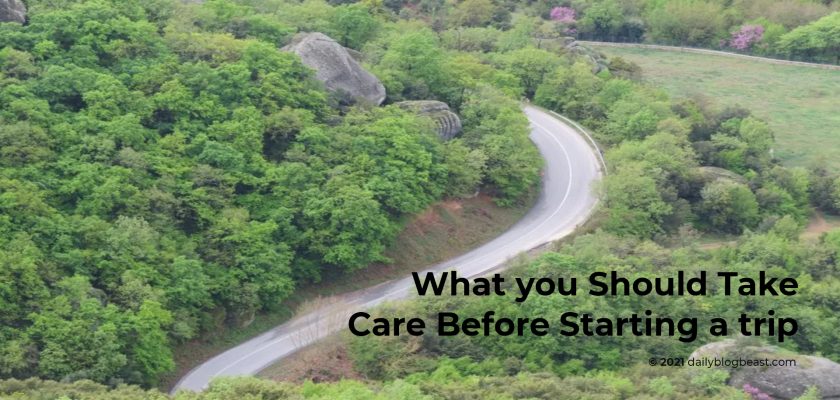The holy trinity of travel preparation may include airfare, hotel accommodations, and rental vehicles, but securing these parts of your holiday is simply the beginning of the trip-planning process.
Taking care of vital duties like researching activities at your destination, managing your finances, and getting your house in order is critical if you want a pleasant, headache-free trip (and who doesn’t?).
When you’ve decided on a trip date, the first thing you should do is call your pet kennel or home sitter (or any other reputable agency) to confirm availability.

After you’ve booked your trip, you should consider placing “stop” orders on any regular deliveries or services. Postal mail, newspapers, and housecleaners are examples of these. If you want certain services to continue (for example, landscaping), consider paying in advance if this isn’t your regular practise.
Many service providers, notably for postal delivery and most publications, allow you to make stop orders online. Because many stop orders demand one or two business days’ notice, make sure to do so at least three days before your trip.
If you’re going within the United States, make a trip to your local bank before departing; this way, you won’t be low on cash and have to rush to find an ATM. You’ll also save money on ATM fees if you use machines that aren’t owned by your bank. To avoid having to utilise ATMs from other banks, go to your bank’s website and map out any possible ATM locations near your destination.
If you’re going internationally, the most cost-effective alternative is to go to an ATM as soon as you arrive and withdraw money in the local currency. Check the webpage of the airport where you will be arriving to see whether there is an ATM available.
Most international airports have many, but there’s no assurance that one will be available if you’re going to a smaller airport in a poor country (or that it will be working properly). You might wish to buy some local cash ahead of time in these situations.
The first day of a journey is frequently ruined by difficulties and strange surroundings. You must first transport yourself and your belongings to a resting location. Then you have to find out where you are, what attractions are close by, and how to make the most of your short time. Making preparations ahead of time can allow you to make the most of that first perplexing day.
You might wish to plan a stroll near your lodgings to assist you get oriented and get rid of travel tiredness and jet lag. Also, look for any adjacent facilities, such as a rooftop club, a balcony with a great view, or a heated pool, for optimum relaxation at the end of a long journey.
Make plans for your LAST day. House keys, vehicle keys, cash for taxis or tolls, phone chip, and papers you’ll need when you arrive joyful but fatigued at your home town airport should all be kept carefully in a package labelled “GOING HOME.” It’s no joy unpacking your stuff at the arrivals area.”
The mobile phone earpiece or any other Bluetooth gadget that allows you to retain both hands on the wheel has become an essential packing item in recent years (and without a phone wedged between your neck and your shoulder). Local rules regarding mobile phone usage while driving vary widely, sometimes even from municipality to municipality. You won’t end yourself on the side of the road with a red siren spinning in your rearview mirror if you pack your hands-free gadget in your carry-on luggage.
The weather is the single most important aspect that may make or break your trip, yet it’s also one of the things that many people overlook.
Obviously, it will be warm in Spain in the spring – right? But, especially during the transitional seasons, there are always deviations to the general weather trends. A weather prediction may help you plan your packing approach, yet failing to do so can leave you unprepared, dissatisfied, and soaked.
You never know where you’ll discover the “best of” in any activity; for example, one of the top guitar stores in the world is in Carlsbad, California. Who’d have guessed? Melbourne, Australia, is known for its strong coffee culture, while Udaipur has excellent bike lanes for visiting rural India.
Most cities, even small villages, have a weekly entertainment publication like Time Out, which covers dozens of places throughout the world.
These are great places to go for entertainment listings, reviews, and city “best-of” lists, among other things. It’s better to check them from home because you can then buy advance tickets, make meal reservations, and so forth. Another helpful resource is the local tourism board’s website, which usually has an events calendar so you can see what’s going on while you’re there.

